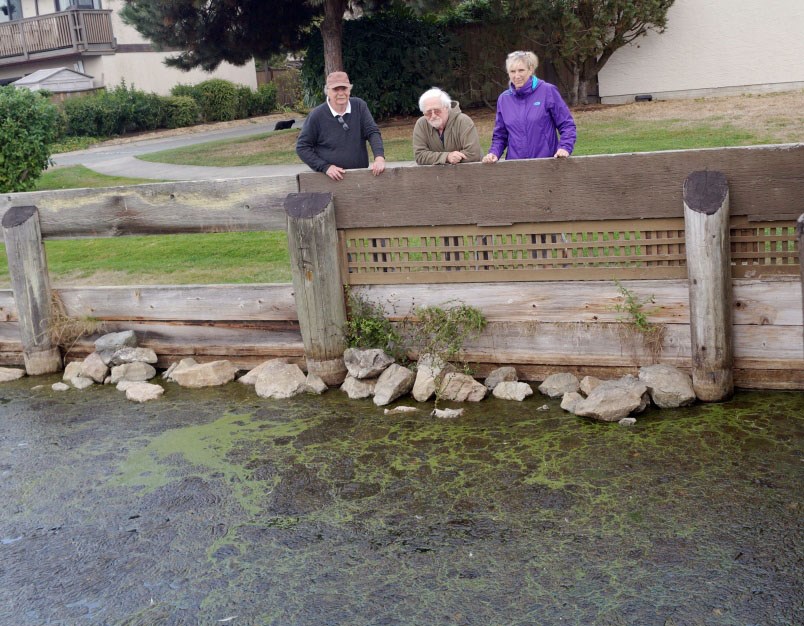The City of Richmond is hoping a letter to the provincial government provokes eradication of an invasive plant on the West Dyke.
Brazilian elodea, believed to originate from a dumped aquarium, has overtaken the water feature — a landscaped drainage ditch — of Mariner’s Village townhouse development, since 2014.
Last year, at a cost of $29,000, the Ministry of Forests, Lands, Natural Resource Operations and Rural Development tried unsuccessfully to remove the plants in a 12-metre section of the 500-metre long canal.
Now, per a report to council, the city is “requesting the immediate deployment of appropriate resources,” as the plants could jump the dyke into the environmentally-sensitive Sturgeon Banks. Pesticides are not an option.
Meanwhile, strata president Michael Krygier said Mariner’s Village residents are prepared to invest in circulation pumps, as fresh, aerated water is helpful.
Krygier told the Richmond News in September the problem has worsened since the city shut off fresh, potable water into the canal, in 2015, after discovering there was no water meter. Prior to this, potable water was pouring in, then flowing out through the drainage system.
As water costs could exceed $200,000 annually, Krygier said it would be prohibitive for the strata to pay. However, an engineering report notes a control valve could maintain water levels with little waste and cost.
Krygier said the strata would like to keep the canal maintained. The city report indicates the parks department could lend a hand in future pond maintenance, but nothing has yet been budgeted.
Krygier said the canal is a home for waterfowl and enjoyed by the public passing by.
Eventually, however, noted the report, the dyke will need to be raised 1.5-metres and widened 10 metres to accommodate for sea level rise within 25 to 75 years. This could eliminate much of the canal all together.



